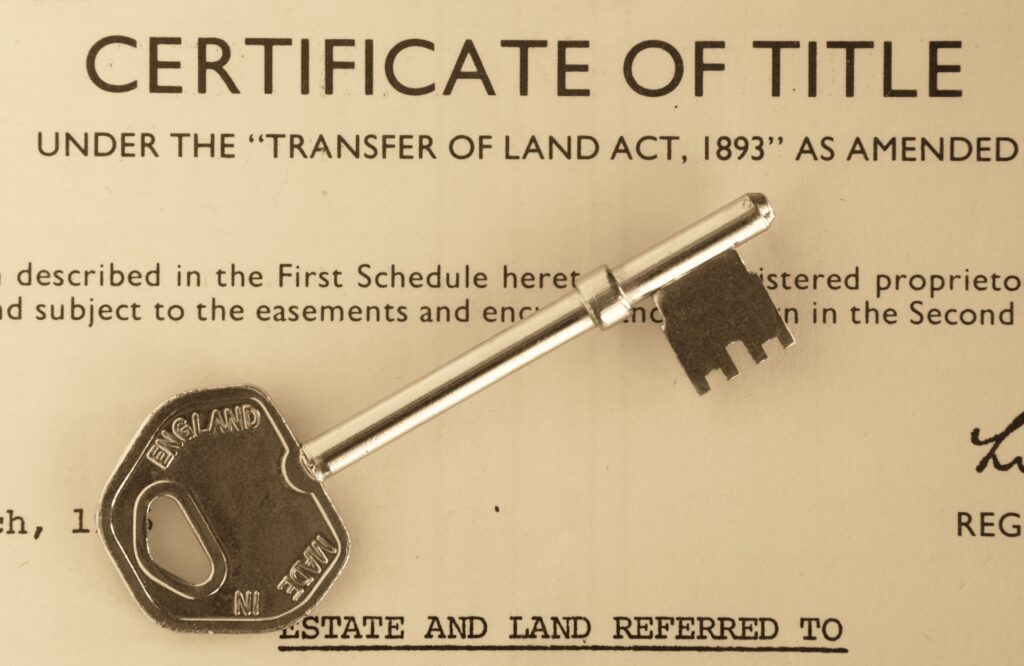

5 things title deeds tell you about a property
The title deeds of a property hold a wealth of information. But, estate agents often forgo this key step when taking on a new listing. We’re going to run through 5 things title deeds can tell you about a property and why it can help your business.
What you can find in the title deeds
Class of title
The title register will tell you what the class of title the property has. This is key information to know as the property may be easier or harder to sell based on the title class. And, if you know what it is you may be able to upgrade it to a more desirable title class such as from possessory title to absolute.
Types of title class:
Absolute – An absolute title is the ideal title class to have.
Possessory – A possessory title may be granted to a property where the owner has been unable to provide evidence of their ownership such as the original deeds have been lost. It can also be granted to owners who have claimed the land through adverse possession.
Qualified – A qualified title is the least common type of title class, and this is where there is a specific defect in the title of the property.
Good Leasehold – Good leasehold titles are given to leasehold properties where HM Land Registry has not received the title of the landlord to grant the lease that is being registered.
Property description
The title deed will include property details within the property register section. This includes the address of the property and an indication of its boundaries (the title plan will show a visual representation of the piece of land and its boundaries which are typically outlined in red or yellow). The description will also state the last price paid for the property as well as if it’s a freehold or leasehold property. Details will be given on the lease if relevant. This information is important to know as it confirms the details about the property the vendor has told you about. Furthermore, it may highlight additional information that they were not, such as the remaining lease length.
Owner name and address
On the title register within the proprietorship register section you can find the name and address of the owner(s). This is important to review, as delays can happen during the conveyancing process if the names don’t match the vendor(s) identifications. This can be common where couples purchased their property together before they were married. Ownership of the land is pertinent to fulfilling AML purposes so the title deeds are a great way to cross-reference against IDs.
Charges
The charges register lists all the interests to which the property is subject. These include positive covenants and restrictive covenants, notices, and legal charges. A legal charge is registered to protect a mortgage loan, where the seller pays off the mortgage on completion. Information on the charges register details how the land can be used, and obligations of the landowner.
Covenants
A covenant is a legal promise or provision to do or not do something in relation to the land. Covenants can be particularly important; they can limit the use of the land and can even affect the property’s value; therefore, it is an important piece of information to know about right from the beginning.
Notices
Notices are used to protect several types of interests. For example, it may include rights of occupation for a spouse. There are two types of notices; unilateral and agreed. It is extremely important to take note of the notices the property has as it describes any interest in the land that a third party may have.
Related Documents
The title deeds describe any other related documents. These can often be useful to review if further investigation is required.
Veya is a title deed analysis tool for estate agents that helps them to speed up sales progression, win more instructions and be more compliant. Book a free demo today to find out more.


Download our latest free e-guide for estate agents
Understand how to review title deeds in detail to uncover important details about properties.
Key takeaways:
- Learn what information to look out for on a title deed.
- See examples of different deeds with issues highlighted.
- Understand why you should be reviewing title deeds every single time you win an instruction.